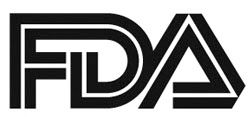FDA Grants Fast Track Designation to Gene Therapy Combination in EGFR-Mutant NSCLC
The FDA has granted a Fast Track Designation to the immune-gene therapy Oncoprex in combination with the EGFR inhibitor osimertinib for the treatment of patients with <em>EGFR</em>-mutant non–small cell lung cancer who have progressed after treatment with osimertinib alone.

The FDA has granted a Fast Track Designation to the immune-gene therapy Oncoprex in combination with the EGFR inhibitor osimertinib (Tagrisso) for the treatment of patients withEGFR-mutant nonsmall cell lung cancer (NSCLC) who have progressed after treatment with osimertinib alone, according to a press release from Genprex, Inc, developer of the therapeutic.
A clinical phase I/II trial will be initiated to evaluate Oncoprex plus osimertinib by Genprex. In addition, the company will initial a phase I clinical trial to evaluate the agent in combination with a checkpoint inhibitor.
“Genprex is excited to receive this important FDA designation,” Rodney Varner, chairman and CEO of Genprex, said in a statement. “In addition to potentially facilitating and expediting our pathway to approval, we believe that this FDA designation validates our plan to commercialize Oncoprex immune-gene therapy in combination with EGFR inhibitors for the treatment of lung cancer.”
Over 50 patients have been treated with the immune-gene therapy in phase I and phase II clinical trials through Genprex. According to the press release, the company believes the findings from these trials have been encouraging in terms of both safety and efficacy. The agent is made up of Tumor Suppressor Candidate 2 (TUSC2) gene complexed with a lipid nanoparticle. TUSC2 is an active agent in the immune-gene therapy.
“We hope that Fast Track Designation helps us bring our gene therapy to patients more rapidly and that our unique gene therapy platform is more widely recognized for its potential in cancer treatment,” Varner said.
Lung cancer is the leading cause of cancer death worldwide, with more than 2 million new cases and 1.7 million deaths per year across the globe. Over 228,000 new cases of lung cancer occur in the United States annually, and 142,000 deaths are related to lung cancer each year. Approximately 84% of all cases of lung cancer are NSCLC, with a 5-year survival rate for metastatic lung cancer of less than 5%.
The FDA’s Fast Track Designation is granted to drugs demonstrating the ability to fulfill unmet medical needs for serious and life-threatening diseases. Should the combination of Oncoprex and the EGFR inhibitor receive approval, it will address the unmet need of patients withEGFR-mutant NSCLC who progress on osimertinib alone.
Reference:
Genprex Receives U.S. FDA Fast Track Designation for Gene Therapy that Targets Lung Cancer [news release]. Austin, Texas: Genprex, Inc; January 21, 2020. https://bit.ly/36dq14Y. Accessed January 21, 2020.
Kim Evaluates New Regimens for EGFR+ Lung Cancer
January 20th 2025During a Community Case Forum event in partnership with the Medical Oncology Association of Southern California, Edward S. Kim, MD, MBA, discussed the FLAURA2 and MARIPOSA trials of newer regimens for EGFR-positive lung cancer.
Read More
Amivantamab/Lazertinib Maintains OS Benefit in EGFR+ NSCLC
January 15th 2025During a Case-Based Roundtable® event, Joshua K. Sabari, MD, continued discussion of key outcomes from the MARIPOSA trial and toxicity management in patients with EGFR-mutated non–small cell lung cancer in the second article of a 2-part series.
Read More